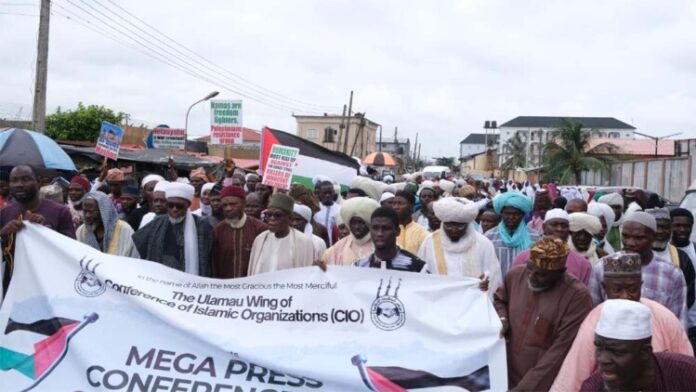Lagos — It was a sober mood Thursday morning, the air at the TMC Dawa Centre in Ijesha, Lagos, was thick with emotion. Islamic scholars, united under the Conference of Islamic Organisations, CIO, gathered in a powerful call to wake the world from its deliberate silence on the ongoing suffering in Gaza.
Their words, infused with anguish and urgency, demanded immediate action as graphic images and videos of the crisis played a stark backdrop from the projector.
Led by Sheikh Abdur Rahman Ahmad, the chair of the Ulamau Wing of CIO, the scholars detailed a reality that is far more brutal than mere statistics can show. As clips flashed on the screens around them, viewers saw haunting images—children with skin so painfully atrophied that bones were clearly visible, their tiny bodies frail and helpless, victims of starvation and neglect. Other videos revealed scenes of young boys and girls with scars and injuries, their innocence stolen amid the chaos.
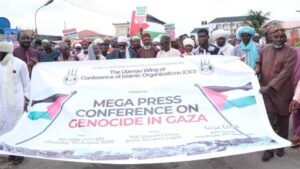
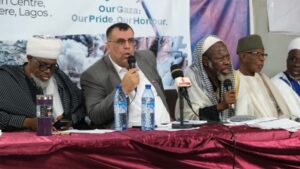
“Look at these children,” Sheikh Ahmad’s voice quivered with emotion. “Their suffering is a testament to the cruelty inflicted on them. These are images of pain, despair, and innocence lost. Yet, despite the world’s outrage, humanitarian aid continues to be stopped from reaching them. The aid trucks are turned away, and life-saving relief is blocked deliberately.”
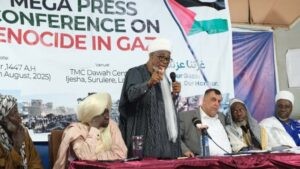
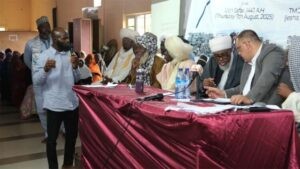
The scholars called for the world to see these images — pictures that reveal the true human toll of a war that has turned homes into ruins and families into orphans. They described how hospitals are overwhelmed, with medical supplies denied, and how children are dying from starvation and preventable diseases, their tiny bodies showing signs of brutal atrophy. The world watches in horror, but aid efforts are hampered, and the suffering deepens.
“It is not enough to condemn from afar,” Sheikh Ahmad insisted. “The brutal images of starving children and bleeding families must awaken our conscience. We cannot turn a blind eye while their lives hang in the balance.”

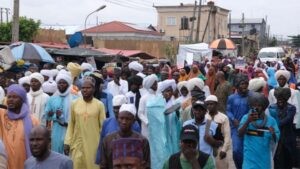
The scholars did not stop there. They urgently called on the international community and Muslim nations to come together—setting aside political differences—to stop the blockage of vital aid and to hold perpetrators accountable. They condemned the continued support of the occupying forces by global powers, whose military and financial backing fuel this ongoing genocide.
“Let these images serve as a stark reminder,” Sheikh Ahmad said, voice trembling with conviction. “This is a human tragedy. Every pixel of these pictures tells the story of children who are dying in silence, their bodies atrophied, their futures stolen. We must act—before it’s too late—to save Gaza and uphold the dignity of every human life trapped in this nightmare.”
As the video clips faded, the scholars called for a united voice—one that demands justice and action. They urged media outlets and global citizens to amplify these images and stories, to keep the world’s attention fixed on Gaza until aid flows freely and peace is restored.


It was a heartfelt plea, a desperate cry for mercy. These images, they said, must not be forgotten. Behind every suffering child is a story of resilience, hope, and the unbreakable human spirit—stories that the world must listen to and act upon.
In the face of cruelty and neglect, the scholars’ message was clear: “We stand with Gaza. We stand for humanity. And we will not be silent.”

